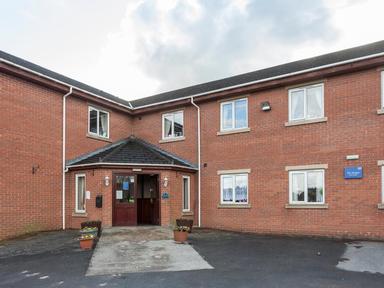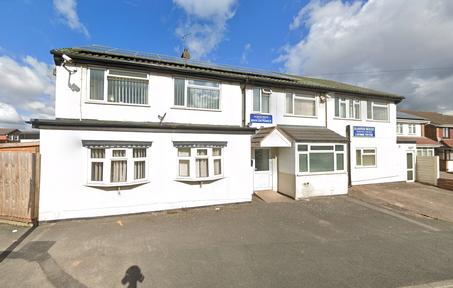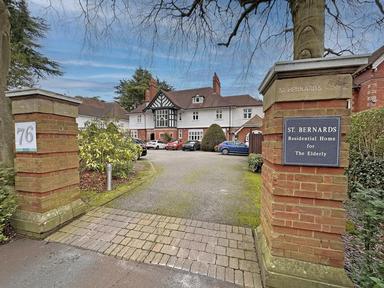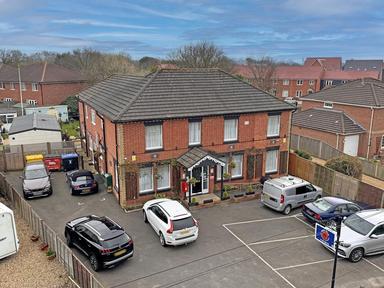Leasing or buying a residential care home: A step-by-step guide
Exploring the particulars of leasing or buying commercial property requires careful planning.
This step-by-step guide, from preparing and researching to the final move-in, outlines the essential steps to secure the perfect space for your care home, covering everything from initial budget considerations to legal formalities.
STEP 1: Prepare and research
Identify requirements: Assess the size and type of property your care home business needs based on its nature and growth plans. This will require detailed consideration of the adaptations needed for use by persons in need of care and on-site accommodation for staff.
Buy vs. rent: Consider the pros and cons of buying versus renting. Buying may involve a commercial mortgage, which requires early inquiries with banks or brokers. You will need to negotiate and agree heads of terms for the purchase of the property or a new lease.
If you're considering renting, you also need to consider whether you require any alterations to the property and whether the landlord needs to agree to these.
This initial negotiation phase for a new lease involves agreeing on the fundamental aspects of the lease, which will provide the foundation for drafting the complete lease documents. A commercial property lawyer will deal with your purchase or new lease.
Most care homes are owned as freehold properties by the business owner because the premises form the key part of the business and, being exposed to third-party landlords under leases may not be ideal, especially for issues around landlord’s consent for occupation of and alterations to the property.
Budgeting: Understand what you can afford in monthly rent or mortgage payments (not forgetting business rates, utilities, possible VAT on rent, or service charges in a lease).
Property sourcing: Register with commercial property agents to find suitable premises in your desired location, and register with care home sales agents to be informed of trading care homes that are either available or coming onto the market.
STEP 2: Property investigations
Legal checks and property searches: Instruct a commercial property lawyer to conduct searches that may uncover, for example: planning permissions that could negatively impact your property, planning consent for the proposed use of the property, whether the property is listed, if the land is contaminated, and utility service connections.
When checking a property's title, the aim is to identify any rights or covenants affecting the property, determine who is responsible for maintaining boundaries, and perform other legal checks to spot potential issues.
Restrictive covenants: As part of the title investigation, your lawyer will investigate any potential restrictions and covenants affecting the use of the property as a care home (e.g. covenants that prohibit trade or business use or covenants that limit the use of the property to a single residential dwelling).
Report on title or lease: Your lawyer will compile a report, which is a general overview of the property information; advising on any identified issues and possible solutions.
Fixtures and fittings: Determine precisely which fixtures and fittings come with the purchase. Ensure any arrangements made with the property owner are documented in writing. If letting, identify which items remain the landlord’s responsibility and which fall to you.
STEP 3: Care Quality Commission (CQC) requirements and checks
Registration: If you are setting up a new care home service, you will need to register with the CQC in order to provide care services. The timing of this can be crucial to the timing of the acquisition of the property as the registration process can take over three months. Taking over an existing trading care home and transferring a seller’s registration with the CQC can also take in excess of three months, therefore the application needs to be timed carefully.
CQC reports: If you are taking over an existing care home, you will need to check the CQC’s inspection reports and identify any issues they reveal, and whether they have been addressed. The CQC’s website provides detailed information on registering a new care home service provider and transferring the registration of an existing care home provider.
STEP 4: Financing
Securing a mortgage: Many businesses need a commercial mortgage, requiring a deposit and a thorough financial analysis of the business. Your lawyer will report to the lender on the property itself. Lender’s will usually take a mortgage charge over the property or a lease (which usually must be for a minimum term of 15 years) as security for their loan, alongside any other security they may require (e.g. personal guarantees, debentures).
Information for lenders: Prepare business accounts, plans, and forecasts to demonstrate your business’s ability to meet mortgage payments.
Valuation and survey: The lender will obtain a detailed property valuation for the property. You should consider a separate full survey to assess the property's condition. Step 5: Exchange of contracts
Deposit: If you are purchasing a care home, you will need to provide your deposit funds to you lawyer.
Exchange of contracts: Whether you are purchasing or taking a lease under a conditional contract, once the terms of the contract are agreed, all property queries have been addressed, all lender requirements have been addressed, and you are satisfied with everything, your lawyer will exchange the contract and fix the completion date. Often, exchange of contracts and completion occur on the same day.
STEP 6: Completion
Final payment: Ensure all funds are in place for completion, whether it’s the rent deposit, or the purchase monies including any stamp duty and land registry fees.
Move-in arrangements: Plan for fitting out, redecoration, moving equipment, and setting up utilities and communications.
Insurance and signage: Arrange necessary insurance and update business stationery and signage. Depending on whether your landlord insures the building you may need only contents insurance rather than building and contents. If you own the property you will usually require both. Make sure you are clear on your insuring obligations and contact a reputable broker.
Legal formalities: Your lawyer completes final checks, registers the transaction with the land registry, and handles stamp duty payment.
Thinking of leasing or buying a care home?
Talk to our property team now:
0117 435 4350 info@rubric.law
Latest Products & Services News
 28-Apr-25
Former Chesterfield care home set to reopen following sale
28-Apr-25
Former Chesterfield care home set to reopen following sale
 24-Apr-25
New owner for established LD care home in Exeter
24-Apr-25
New owner for established LD care home in Exeter
 23-Apr-25
DC Care Sells Harper House
23-Apr-25
DC Care Sells Harper House
 16-Apr-25
Family-run residential care home in Solihull village sold
16-Apr-25
Family-run residential care home in Solihull village sold
 15-Apr-25
14-bedroom closed Hampshire care home for sale at £800,000
15-Apr-25
14-bedroom closed Hampshire care home for sale at £800,000